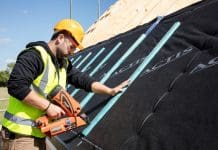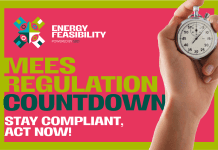As the automotive emissions crisis evolves Matthew King, UK and Ireland Director of Actis muses on reputations and how his own industry can learn from the experience…
Everyone is talking about it. It is a monumental crisis. The latest estimates I’ve heard around the emissions scandal is that 11 million vehicles are affected, and the company behind it could be fined as much as $18 billion. Potentially, of even greater damage has been the reputational impact of the crisis. A brand that has stood for so many years as a symbol of trust and reliability has been dragged through the mire.
But what possible parallels could there be between emissions testing of cars and the insulation industry? I believe there are two areas from which we can learn – both with a strong reputational dimension.
The first is more obvious – and this applies to just about any organisation or industry. If you don’t properly anticipate risks and plan for them, then there is a very real threat that some serious issues will go unchecked and undetected. Ultimately, they may explode into full-scale crises and then, even with the most skilled management in the world, can do immeasurable damage to reputations, as well as operations and balance sheets.
The other area that strikes me is around the very source of the emissions scandal – the testing procedures. In the car company’s case, there has been deliberate manipulation of results. Whatever industry we are in, we do have a responsibility to be as thorough and precise as possible in our approach to testing of materials and products. Furthermore, in our own industry, we should aim to be extra-transparent with the results of the tests to help specifiers and customers – both trade and consumers – make more informed decisions on insulation. We need them to be able to compare one product against another, with full confidence that the products will perform as expected under real life conditions.
I believe that the insulation industry should even more strongly embrace the robustness we can gain from dual testing. While it is perfectly understandable that some of us will have reservations about the additional upfront time and cost that two sets of tests are likely to bring, surely there is a bigger picture here?
Laboratory testing offers a steady state, predetermined set of unchanging criteria – a sort of control if you like. On the other hand, in situ testing best replicates ‘real life’ climatic conditions, such as wind and rain. By combining both we can double check that what the constant lab conditions show is validated in the real world – thus ensuring that the insulation will perform in reality as predicted and eliminating any concern about a performance gap.
The reputation of the insulation industry is, of course, shaped by much more than the robustness and accuracy of our testing procedures, but anything we can do to build trust in what we say and claim has to be a good thing. Dual testing can play a significant role in supporting us here. Our specifiers and customers rightly expect us to give them accurate performance data. Let’s make sure we do. Get it right and the insulation industry as a whole reaps the benefits. If ever we needed reminding of the value of reputation, the media headlines and US congressional hearings linked with the automotive emissions crisis tell us that we should certainly not take our reputation for granted. ■
. . . . . . . . . . . . . . . . . . . . . . . . . . . . . . . . . . . . . . . . . . . . . . .
Matthew King
UK and Ireland Director
Actis Insulation Ltd
Tel: 01249 462 888
solutions@insulation-actis.com













